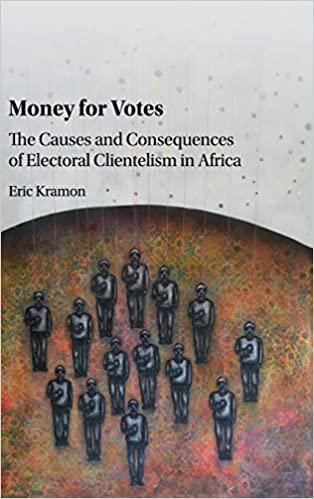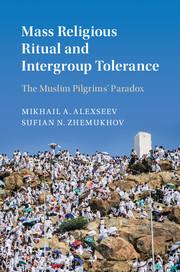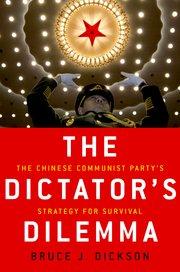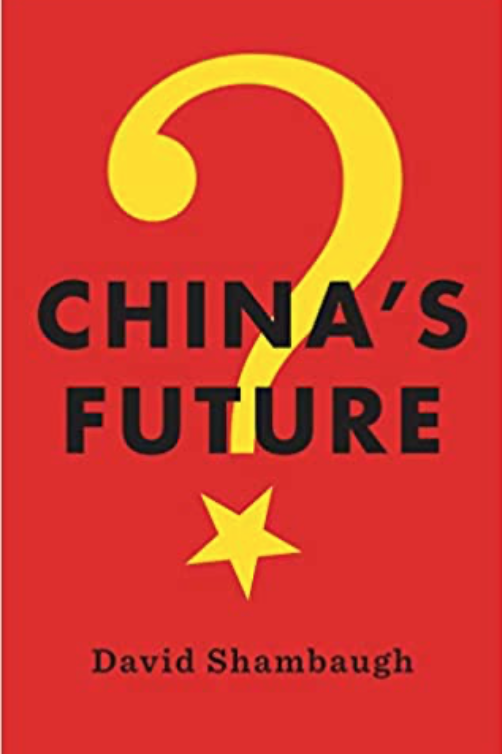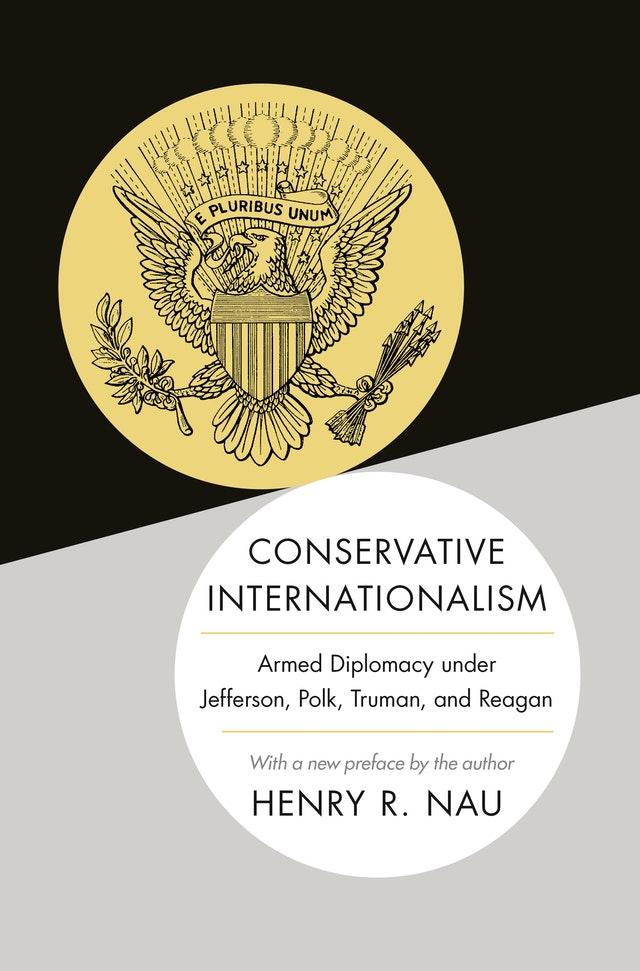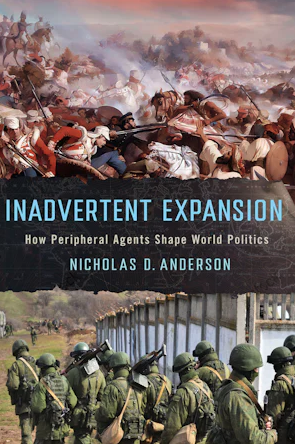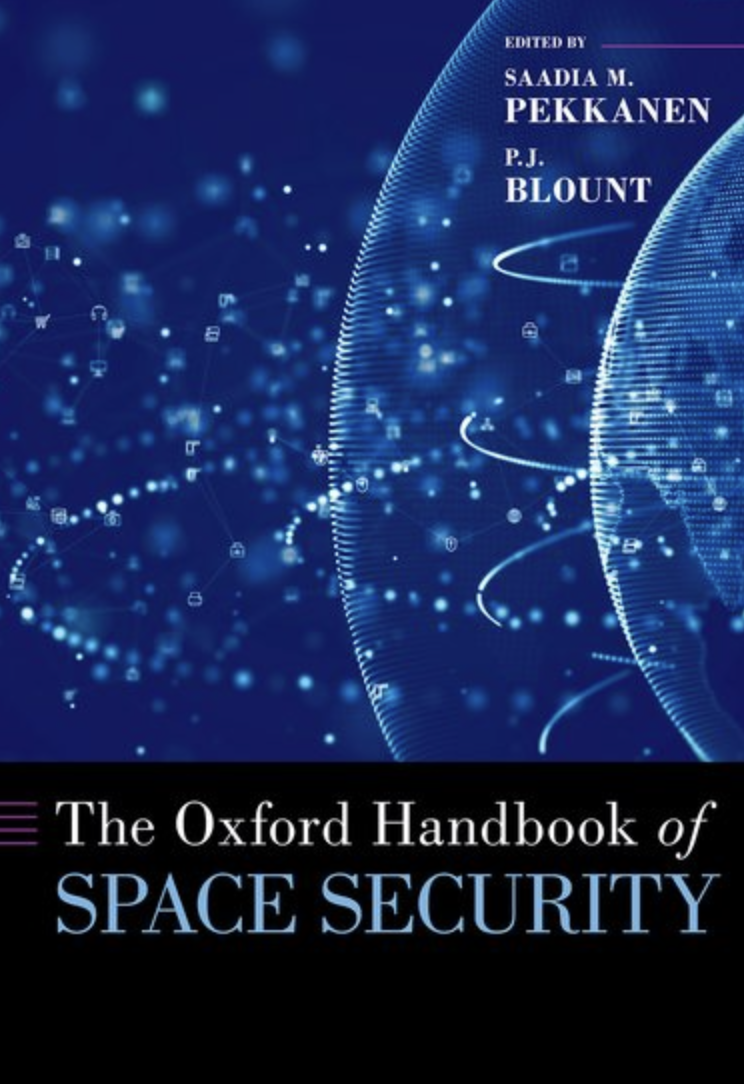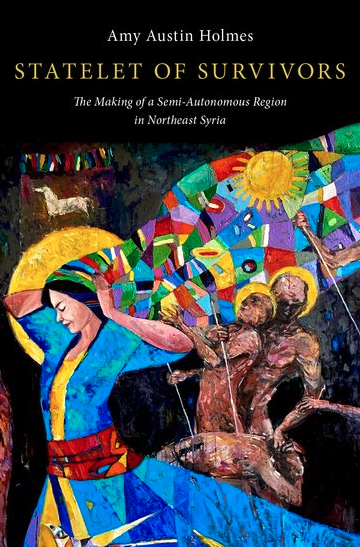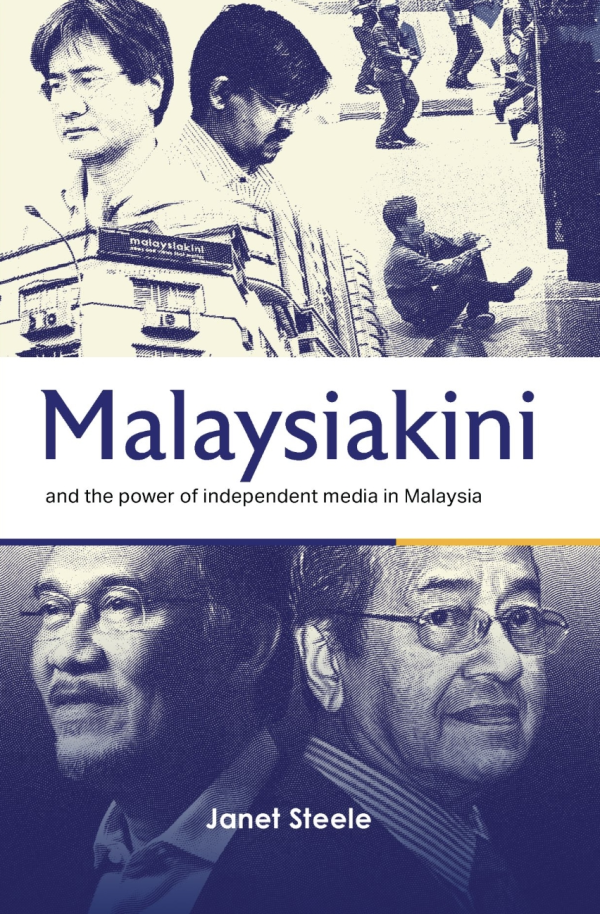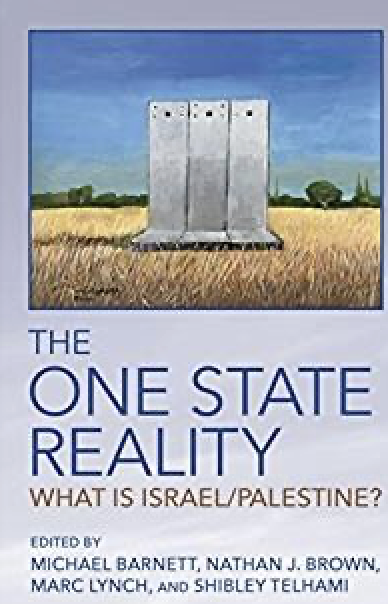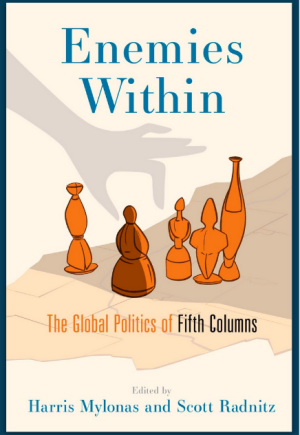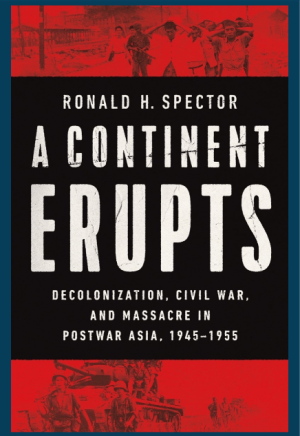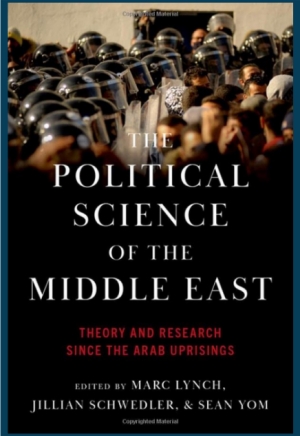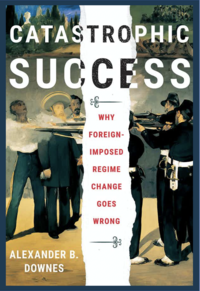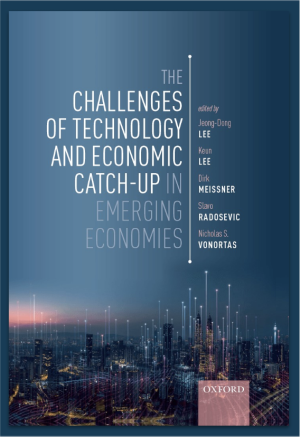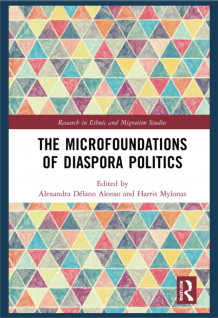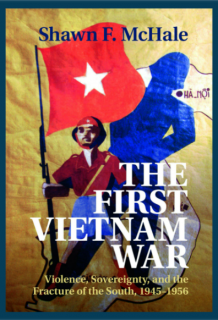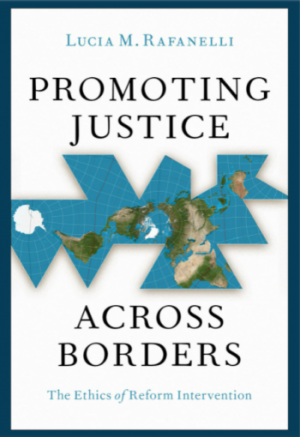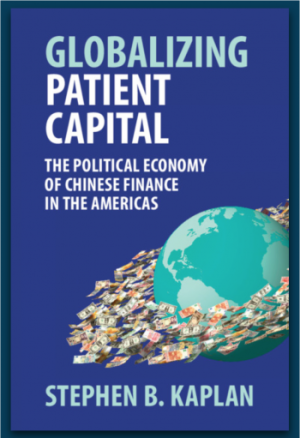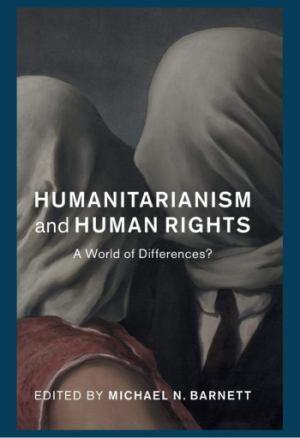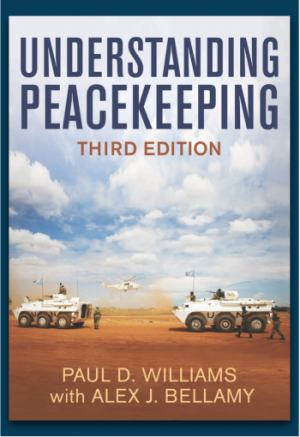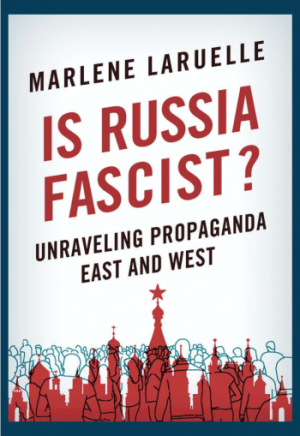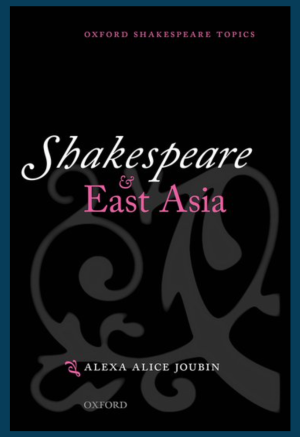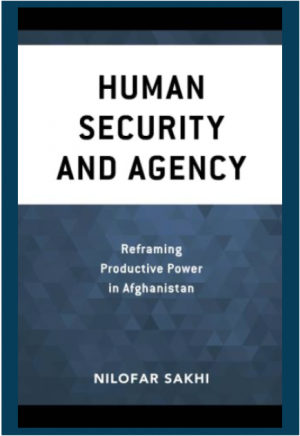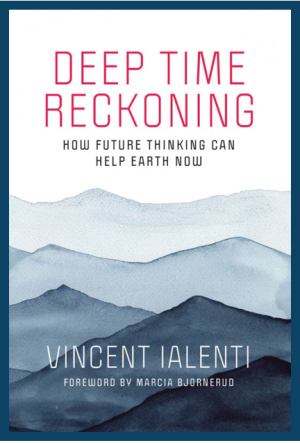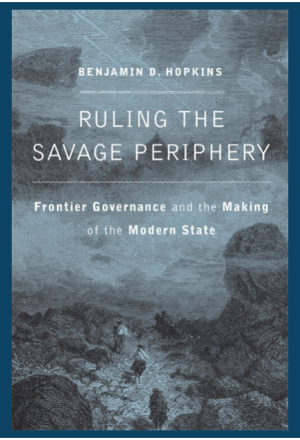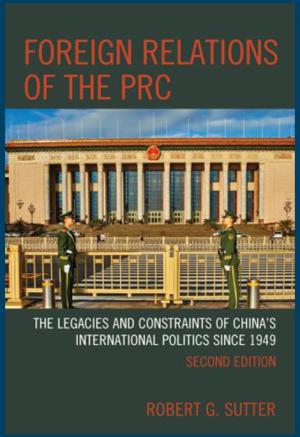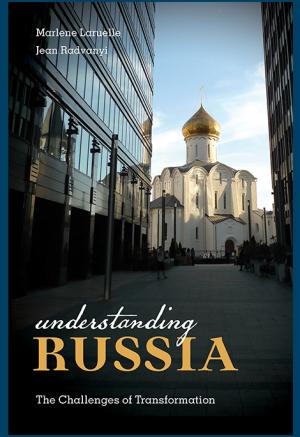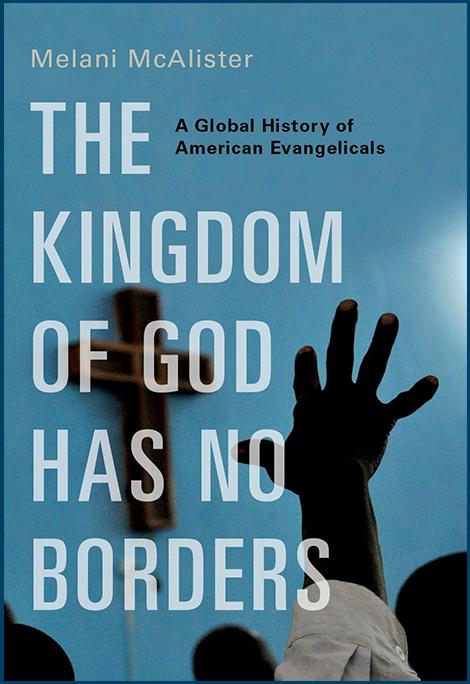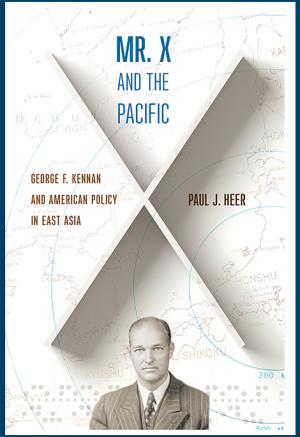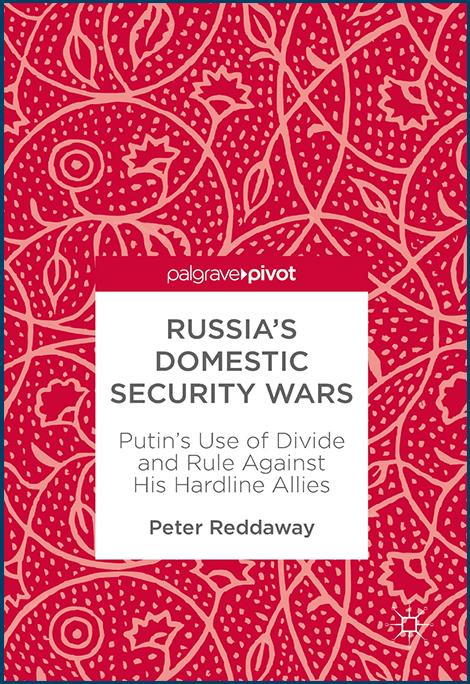Elliott School Book Launch Series
Upcoming Book Launch Events
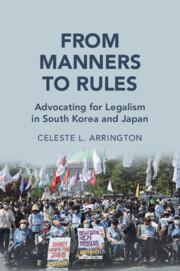
From Manners to Rules: Advocating for Legalism in South Korea and Japan
February 5, 2026 | Elliott School of International Affairs | 12:30PM EST
Register here.
From Manners to Rules traces the emergence of legalistic governance in South Korea and Japan. While these countries were previously known for governance characterized by bureaucratic discretion and vague laws, activists and lawyers are pushing for a more legalistic regulatory style. Legalism involves more formal, detailed, and enforceable rules and participatory policy processes. Previous studies have focused on top-down or structural explanations for legalism. From Manners to Rules instead documents bottom-up sources of institutional and social change, as activists and lawyers advocate for and use more formal rules and procedures. By comparing recent reforms in disability rights and tobacco control, the book uncovers the societal drivers behind legalism and the broader judicialization of politics in East Asia's main democracies. Drawing on 120 interviews and diverse sources, From Manners to Rules challenges the conventional wisdom that law and courts play marginal roles in Korean and Japanese politics and illuminates how legalistic governance is transforming citizens' options for political participation.
Award-Winning Faculty Publications
Past Book Launches
Explore previous book launches below and don't forget to check out the Elliott School Book Launch Series YouTube playlist for select recordings.
- 2025
- Image
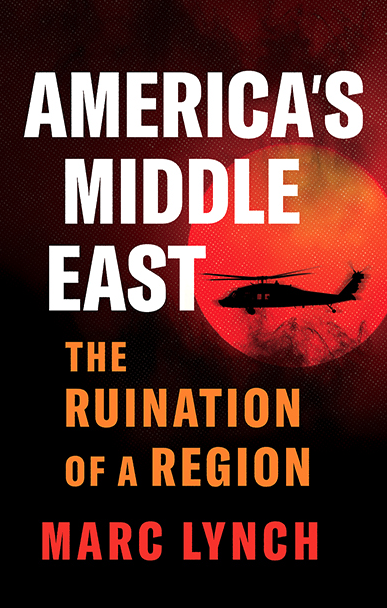
America's Middle East: The Ruination of a Region
November 5, 2025 | Elliott School of International Affairs | 12:00PM EST
After Hamas’ shocking 2023 attack on Israel, the United States stood firmly behind Israel’s near-genocidal war on Gaza, despite widespread moral outrage and significant damage to Washington’s global agenda. But Gaza is only the latest paradox in thirty-five years of Middle East policy. How did this pattern develop, why can’t policymakers learn from repeated Middle Eastern calamities, and what does Gaza’s destruction mean for America’s place in the world?
Marc Lynch charts the United States’ disastrously failed approach to the post–Cold War Middle East, where aspirations for US leadership and a calm region have only produced war, instability and humanitarian catastrophe. Lynch exposes the failure of each president’s efforts to transform the Middle East in America’s image, or pivot away from the region; Washington’s refusal to take seriously the views of Middle Easterners; and its fantasy of forging a regional order ‘without’ the Palestinian issue.
Moving between American politics and Middle Eastern realities, this incisive account explains why US policy has not changed despite its horrifying human costs, from Iraq, Lebanon and Syria to Iran, Yemen and Libya.
Image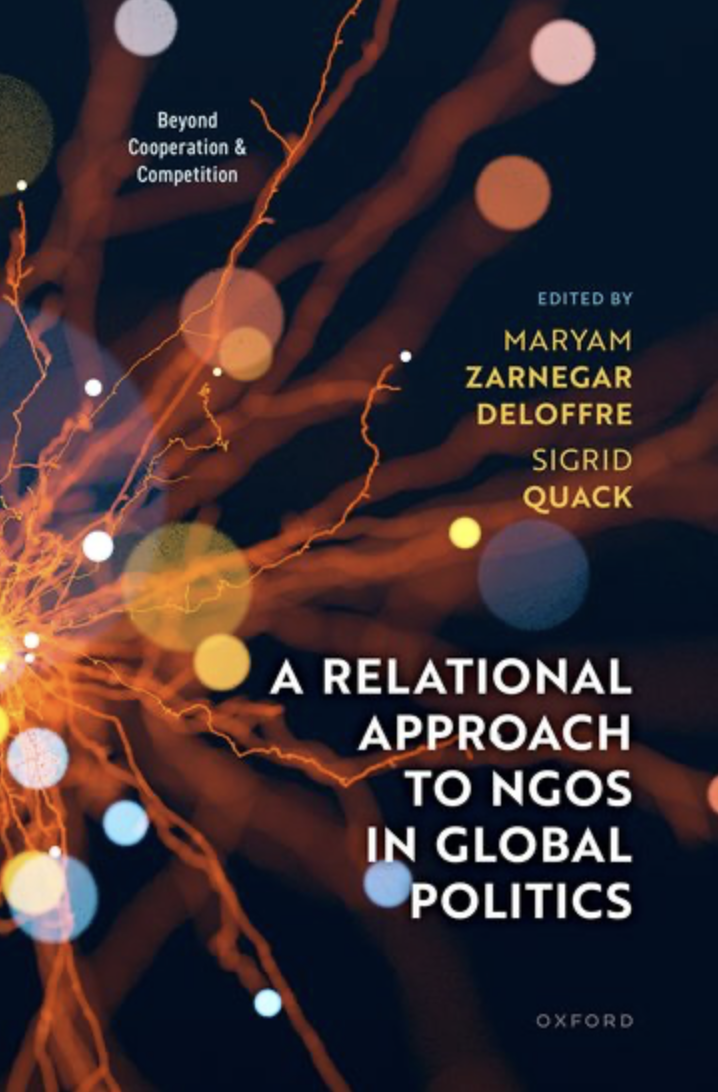
A Relational Approach to NGOs in Global Politics
September 3, 2025 | Elliott School of International Affairs | 3:30PM EDT
How do nongovernmental organizations (NGOs) create the spaces in which they act, despite all the odds against them? How do NGOs seem to meet the requirements of the moment, often being in the right place at the right time? Why is the sum of NGO activity frequently greater than the parts? These questions cannot be answered simply by looking at NGOs’ organizational attributes or outcomes. To truly grasp the power of NGOs it is necessary to examine how they relate to each other, as well as with states, intergovernmental organizations, businesses, and other actors. A Relational Approach to NGOs in Global Politics argues for more detailed attention to the forms and processes of interactions between NGOs, and a broader conceptualization of NGO–NGO relationships to better understand their power and agency in global politics. It develops core conceptual building blocks—NGOing, a typology of social interactions, and a typology of relational power and its effects—and explores them in empirical studies of NGOs on a range of topics, including legal environmental conflicts, humanitarian assistance, counterterrorism, climate politics, and social and economic rights. The volume makes three main contributions to the literature on NGOs and global politics: it expands the understanding of NGOing; promotes synthetic knowledge about the power of NGO interactions and their effects; and opens up new perspectives on processes of global governing.
Image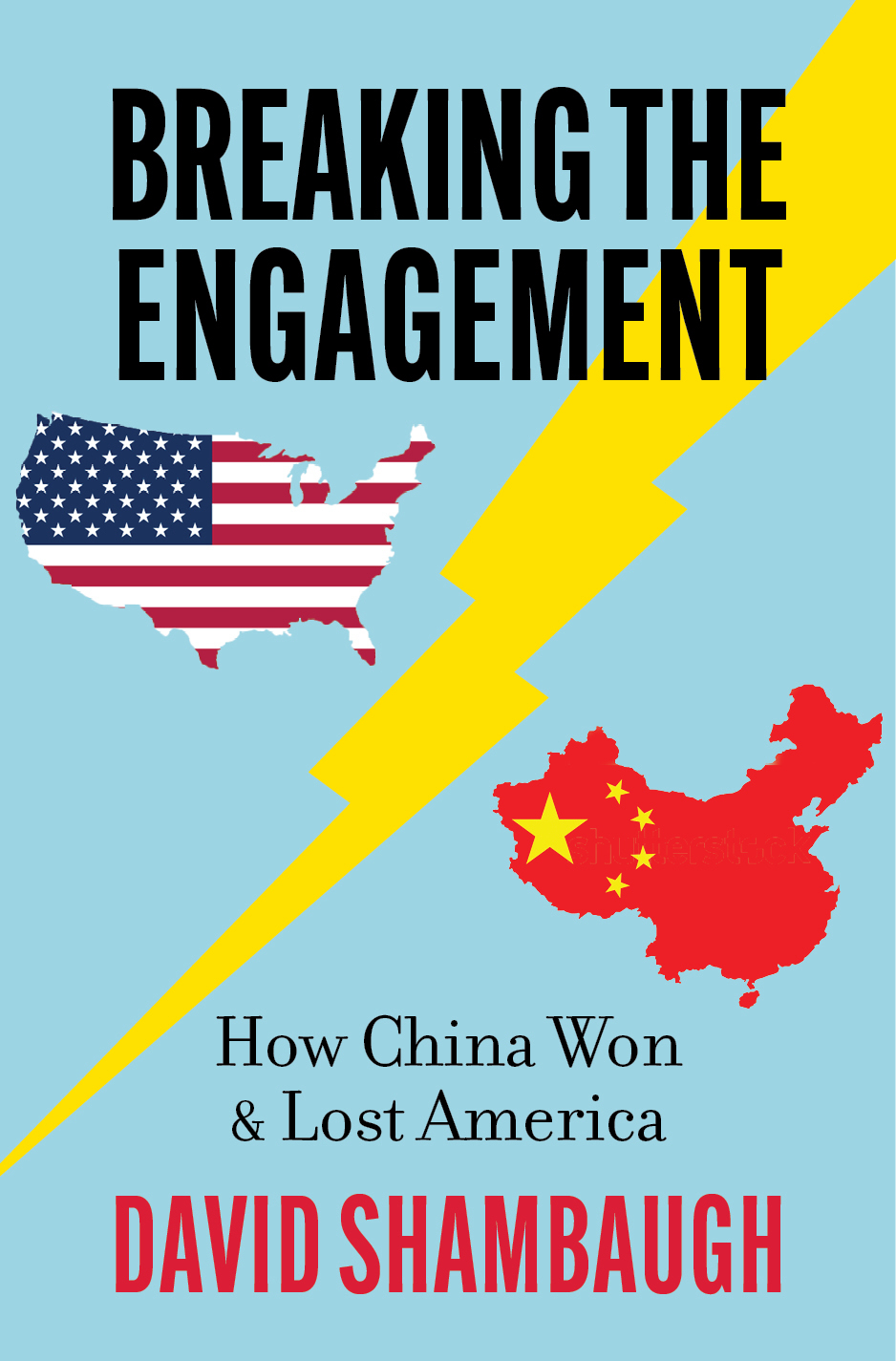
Breaking the Engagement: How China Won & Lost America
May 6, 2025 | Elliott School of International Affairs and Online | 4:00PM EDT
About the Book
For over five decades following the 1972 rapprochement between the United States and China, the two countries seemed to be steadily building a sound relationship, even accounting for periodic setbacks like the Tiananmen Square massacre. The last decade, though, has seen a sharp increase in tensions and a complete reorientation of American policies toward China—from "engagement" to "competition."
What happened? In Breaking the Engagement: How China Won & Lost America, esteemed scholar David Shambaugh examines the evolution, expansion, and disintegration of the American engagement strategy towards China.
This is the book we have all been waiting for: the definitive history of the sea change in American policy toward China during the past half century from engagement to competitive rivalry. Shambaugh's book is objective, detailed, and valuable reading for everyone worried about the future of US-China relations.
-- Susan Shirk, Emeritus Chair, 21st Century China Center, UC San Diego
David Shambaugh is one of today's most respected and influential thinkers on China. His decades of research, teaching and leadership in the field make for an unparalleled dive into the development and fracturing of the world's most important bilateral relationship. If understanding our past reveals much about our future, then this brilliant analysis should be considered required reading in understanding one of history's most consequential geopolitical megatrends.-- Jon Huntsman, Former Ambassador to China, Russia, Singapore, and Governor of Utah
The U.S. sees China as the pacing challenge in our strategic competition. But China is also a puzzle. Why did our strategy of Engagement fail? No one is better placed to solve this puzzle than David Shambaugh in this well-informed and very readable account. Anyone interested in our great power competition with China must read this book.
-- Joseph S. Nye, Former Dean of the Harvard Kennedy SchoolAbout the Author

David Shambaugh is an internationally recognized scholar and award winning author on contemporary China and the international relations of Asia. An active public intellectual and educator, he serves on numerous editorial boards, and has been a consultant to governments, research institutions, foundations, universities, corporations, and investment funds. He is currently the Gaston Sigur Professor of Asian Studies, Political Science, and International Affairs at George Washington University,and Distinguished Visiting Fellow at the Hoover Institution, Stanford University. He previously was Reader in Chinese Politics at the University of London's School of Oriental & African Studies (SOAS), where he also served as Editor of the prestigious journal The China Quarterly.
Image
Ideology and Meaning-Making Under the Putin Regime
May 1, 2025 | Elliott School of International Affairs and Online | 12:00PM EDT
Much has been written to try to understand the ideological characteristics of the current Russian government, as well as what is happening inside the mind of Vladimir Putin. Refusing pundits' clichés that depict the Russian regime as either a cynical kleptocracy or the product of Putin's grand Machiavellian designs, Ideology and Meaning-Making under the Putin Regime offers a critical genealogy of ideology in Russia today. Marlene Laruelle provides an innovative, multi-method analysis of the Russian regime's ideological production process and the ways it is operationalized in both domestic and foreign policies. Ideology and Meaning-Making under the Putin Regime reclaims the study of ideology as an unavoidable component of the tools we use to render the world intelligible and represents a significant contribution to the scholarly debate on the interaction between ideas and policy decisions. By placing the current Russian regime into a broader context of different strains of strategic culture, ideological interest groups, and intellectual history, this book gives readers key insights into how the Russo-Ukrainian War became possible and the role ideology played in enabling it.
Hosted on February 27, 2025
In Inadvertent Expansion, Nicholas D. Anderson investigates a surprisingly common yet overlooked phenomenon in the history of great power politics: territorial expansion that was neither intended nor initially authorized by state leaders.
Territorial expansion is typically understood as a centrally driven and often strategic activity. But as Anderson shows, nearly a quarter of great power coercive territorial acquisitions since the nineteenth century have in fact been instances of what he calls "inadvertent expansion." A two-step process, inadvertent expansion first involves agents on the periphery of a state or empire acquiring territory without the authorization or knowledge of higher-ups. Leaders in the capital must then decide whether to accept or reject the already-acquired territory.
Accentuating the influence of small, seemingly insignificant actors over the foreign policy behavior of powerful states, Inadvertent Expansion offers new insights into how the boundaries of states and empires came to be and captures timeless dynamics between state leaders and their peripheral agents.
- 2024
- Image
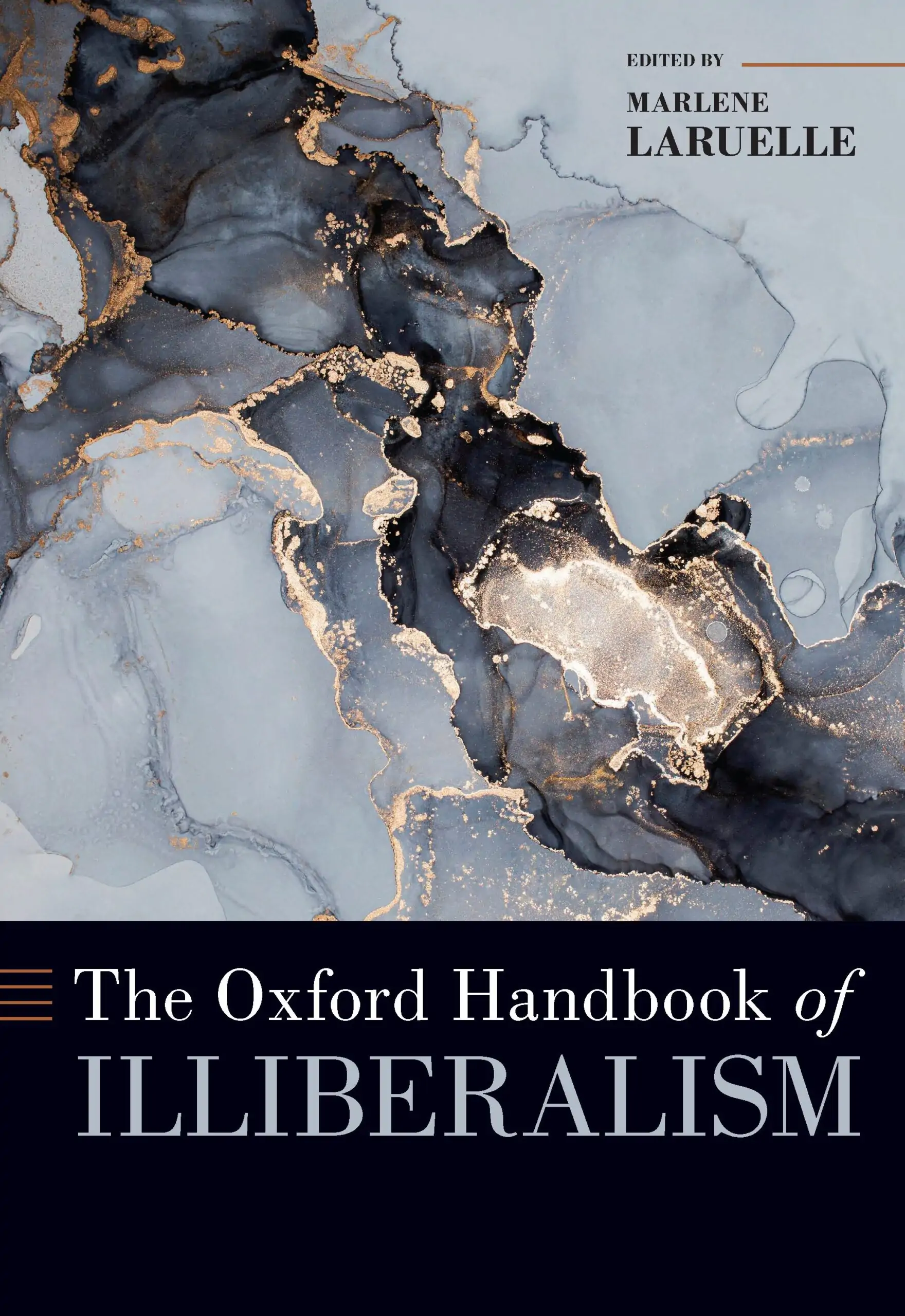
The Oxford Handbook of Illiberalism
Hosted on November 12, 2024
From the rise of populist leaders and the threat of democratic backsliding to polarizing culture wars and the return of great power competition, the backlash against the political, economic, and social liberalism is increasingly labeled “illiberal.” Yet, despite the increasing importance of these phenomena, scholars still lack a firm grasp on illiberalism as a conceptual tool for understanding societal transformations. The Oxford Handbook of Illiberalism addresses this gap by establishing a theoretical foundation for the study of illiberalism and showcasing state-of-the-art research on this phenomenon in its varied scripts—political, economic, cultural, and geopolitical. Bringing together the expertise of dozens of scholars, the Oxford Handbook of Illiberalism offers a thorough overview that characterizes the current state of the field and charts a path forward for future scholarship on this critical and quickly developing concept.
Image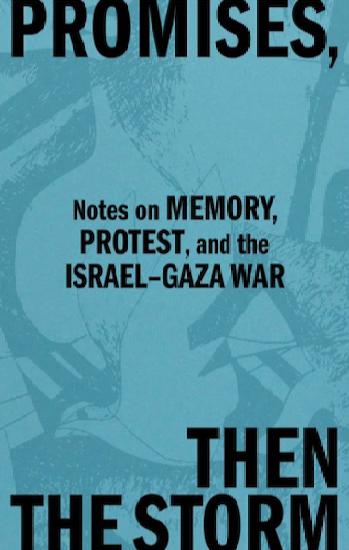
Promises then the Storm: Notes on Memory, Protest, and the Israel–Gaza War
Hosted on October 23, 2024
On the outbreak of the war in Gaza in October 2023, Professor Melani McAlister began to use her journal to track the rapid development of the conflict and the parallel evolution in the ways it was represented in the US media. Drawing on McAlister’s decades of experience as a scholar of US–Middle East relations, as well as her personal history in activism, this incisive and dynamic text traces the devastating development of the current war in real time, identifying echoes with previous moments in the history of the region and the protests and artistic responses they prompted. This series of meditations explores the enduring power of narrative and memory, threading throughout the work of Arab and Arab American poets and musicians to tell a story of Palestinian resistance and resilience.
Image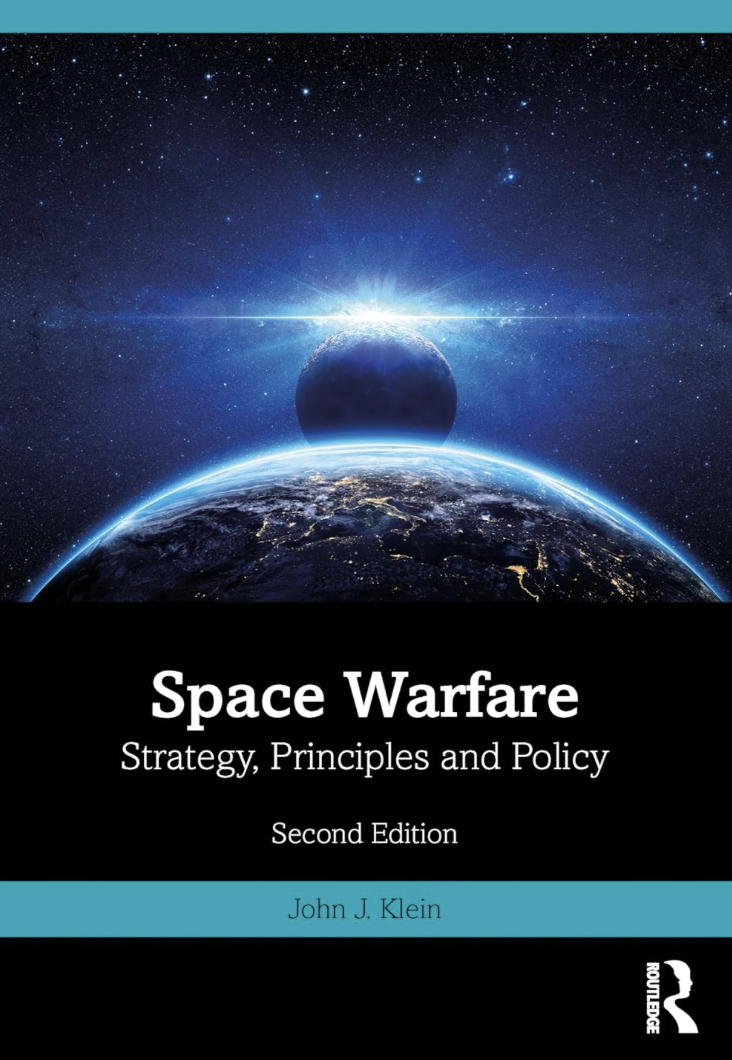
Space Warfare: Strategy, Principles and Policy
Hosted on October 9, 2024.
This book examines competition and conflict in the space domain, including the methods used and sound counterstrategies to thwart a competitor’s efforts. Contrary to many spacepower pundits, Space Warfare explains that neither is the space domain inherently offense-dominant nor is there a first-mover advantage when incorporating a sound space strategy. Offering new insights into the nature of strategic competition in space, this second edition leans heavily on the British maritime experience and the work of Julian Corbett to provide a strategic framework for understanding competition, crisis, and conflict in the space domain. It also includes important concepts from leading theorists and strategists, both past and present, to amplify concepts and provide additional insights into the functioning of space strategy. The book provides a foundational framework by underscoring that space strategy is shaped by the fundamental nature of all warfare, along with the universal principles of strategy and the essential unity of all strategic experience. Warfare is warfare, no matter the domain of operations, and consequently, policymakers and military leaders can look to historical experience and knowledge of past strategic frameworks to help gain insights into the functioning of space warfare.
Image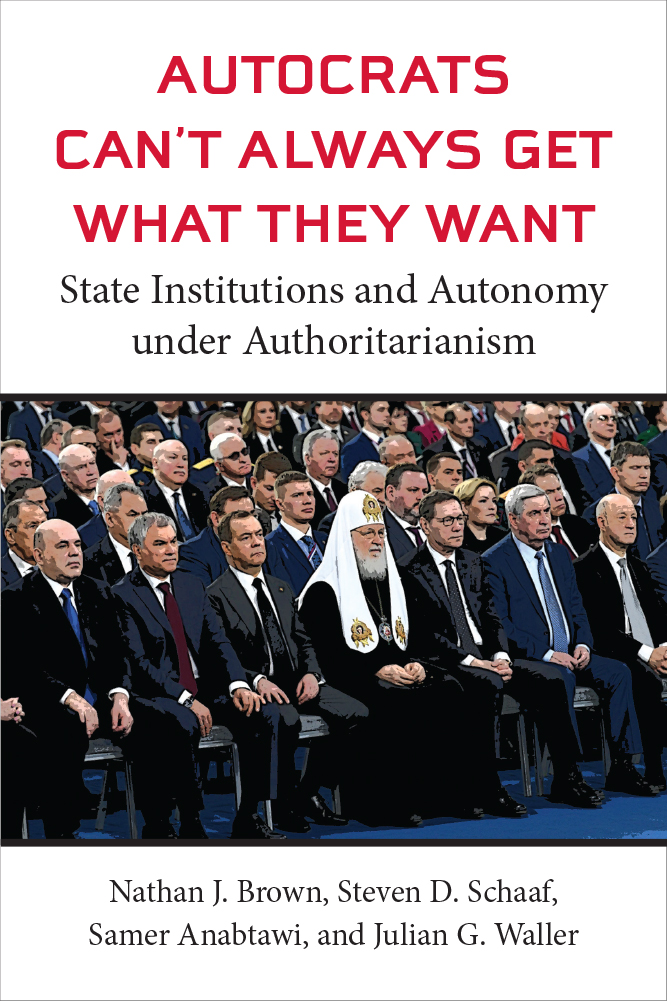
Autocrats Can't Always Get What They Want
Hosted on September 24, 2024.
View the event recording.
Authoritarianism seems to be everywhere in the political world—even the definition of authoritarianism as any form of non-democratic governance has grown very broad. Attempts to explain authoritarian rule as a function of the interests or needs of the ruler or regime can be misleading. Autocrats Can’t Always Get What They Want argues that to understand how authoritarian systems work we need to look not only at the interests and intentions of those at the top, but also at the inner workings of the various parts of the state. Courts, elections, security force structure, and intelligence gathering are seen as structured and geared toward helping maintain the regime. Yet authoritarian regimes do not all operate the same way in the day-to-day and year-to-year tumble of politics.
Image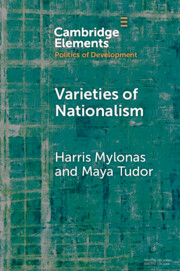
Hosted on September 11, 2024.
View the event recording.
Nationalism has long been a normatively and empirically contested concept, associated with democratic revolutions and public goods provision, but also with xenophobia, genocide, and wars. Moving beyond facile distinctions between 'good' and 'bad' nationalisms, Varieties of Nationalism argues that nationalism is an empirically variegated ideology. Definitional disagreements, Eurocentric conceptualizations, and linear associations between ethnicity and nationalism have hampered our ability to synthesize insights. This Element proposes that nationalism can be broken down productively into parts based on three key questions: (1) Does a nation exist? (2) How do national narratives vary? (3) When do national narratives matter? The answers to these questions generate five dimensions along which nationalism varies: elite fragmentation and popular fragmentation of national communities; ascriptiveness and thickness of national narratives; and salience of national identities.
Image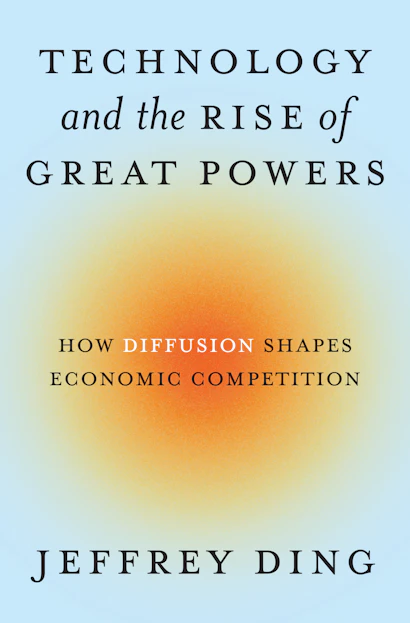
Technology and the Rise of Great Powers: How Diffusion Shapes Economic Competition
Hosted on September 3, 2024.
View the event recording.
When scholars and policymakers consider how technological advances affect the rise and fall of great powers, they draw on theories that center the moment of innovation—the eureka moment that sparks astonishing technological feats. In Technology and the Rise of Great Powers, Jeffrey Ding offers a different explanation of how technological revolutions affect competition among great powers. Rather than focusing on which state first introduced major innovations, he investigates why some states were more successful than others at adapting and embracing new technologies at scale. Drawing on historical case studies of past industrial revolutions as well as statistical analysis, Ding develops a theory that emphasizes institutional adaptations oriented around diffusing technological advances throughout the entire economy.
The Oxford Handbook of Space Security
Hosted on May 1, 2024
In The Oxford Handbook of Space Security, editors Saadia M. Pekkanen and P.J. Blount gather prominent space scholars to theorize the development and governance of space security and analyze current pressure points. Space security is in a period of great transition as new technologies emerge and states openly pursue counterspace capabilities. The Handbook explains how these contemporary changes will affect future security in, from, and through space. Among the leading scholars featured in book are the Elliott School's own Aaron Bateman, John J. Klein, Peter L. Hayes, and Scott Pace. They, along with editors Pekkanen and Blount, discussed their contributions to the Handbook in the context of contemporary and future space security.
Statelet of Survivors: The Making of a Semi-Autonomous Region in Northeast Syria
Hosted on February 21, 2024
In Statelet of Survivors, Elliott School Research Professor Amy Austin Holmes charts the movement from its origins to what it has become today. Drawing from seven years of research trips to northern and eastern Syria, Holmes traces the genealogy of this social experiment to the Republic of Mount Ararat in Turkey, where a self-governing entity was proclaimed in 1927 based on solidarity between Kurds and Armenian genocide survivors. Founded by survivors of modern-day atrocities, the Autonomous Administration does more to empower women and minorities than any other region of Syria. Holmes analyzes its military and police forces, schools, the judicial system, the economic model it has implemented, and strategy of empowering women who were once enslaved by ISIS. An in-depth examination of the region Kurds call Rojava, this book tells the remarkable story of the people who both triumphed over ISIS and created a model of decentralized governance in Syria that could eventually be expanded if Assad were to ever fall.
If you missed the event, you can view Dr. Holmes' presentation and the comments offered by Ambassador William “Bill” Roebuck on the Elliott School Book Launch Series YouTube playlist.
Sharing Nuclear Secrets: Trust, Mistrust, & Ambiguity in Anglo-American Nuclear Relations Since 1939
Sharing Nuclear Secrets: Trust, Mistrust, & Ambiguity in Anglo-American Nuclear Relations Since 1939
Hosted on February 21, 2024
Nuclear alliances are high stakes partnerships with the potential to enhance security, goodwill, scientific and technical innovation, and economic well-being; or, they risk a state's very existence, generate social and political unrest, and fracture frameworks for international cooperation and jeopardize global reputations. Now entering its eighth decade, the Anglo-American nuclear alliance is the oldest and most complex in the world. Co-authored by Elliott School Professorial Lecturer Anthony Eames, Sharing Nuclear Secrets is the first comprehensive single-volume study of the Anglo-American nuclear relationship, illuminating both its fragility and durability. It has waxed and waned based on the preferences of presidents and prime ministers, weathered war scares, overcome isolationist impulses and imperial decline, persisted despite public antipathy, and has survived and been strengthened by scientific rivalries.
If you missed the event, you can view the Dr. Eames' presentation and the Q&A moderated by Assistant Professor Aaron Bateman on the Elliott School Book Launch Series YouTube playlist.
Malaysiakini and the Power of Independent Media in Malaysia
Hosted on February 7, 2024
In Malaysiakini and the Power of Independent Media in Malaysia, Elliott School Professor Janet Steele chronicles the success of Malaysia’s only truly independent media outlet. Founded in 1999 by Steven Gan and Premesh Chandran, Malaysiakiniwas one of many online portals that sprung up in the wake of Reformasi, a period of public protests sparked by Prime Minister Mahathir Mohammad’s 1998 firing of his deputy Anwar Ibrahim. At first, there was no reason to think that Malaysiakini would be anything momentous. However, Malaysiakini wanted to do something much more important than just reporting on Reformasi—its founders intended to bring independent journalism to Malaysia in hopes of changing the country for the better.
If you missed Dr. Steele's presentation, you can view the recording on the Elliott School Book Launch Series YouTube playlist.
- 2023
The Tarikh-i Hamidi A Late-Qing Uyghur History
Hosted on November 16, 2023
The Tarikh-i Hamidi is an epic and tragic history from the region of Xinjiang in northwest China, the homeland of the Muslim-majority Uyghur people. Written in the early twentieth century, it chronicles a mass rebellion by the Muslims of Xinjiang against the China-based Qing empire from its beginnings in 1864 to the Qing reconquest of 1877 and its aftermath.
If you missed the event, you can catch up with author Eric Schluessel's presentation on the Elliott School Book Launch Series YouTube playlist.
Fight for the Final Frontier: Irregular Warfare in Space
Hosted on September 28, 2023
Providing the needed foundational understanding, Fight for the Final Frontier makes the case that irregular warfare in the space domain is shaped by the fundamental nature of all warfare, along with universal principles of strategy and the essential unity of all strategic experience.
Hosted on September 5, 2023
You cannot understand the historic events of 2022 without understanding Zelensky. But the Zelensky effect is less about the man himself than about the civic nation he embodies: what makes Zelensky most extraordinary in war is his very ordinariness as a Ukrainian. The Zelensky Effect explains this paradox, exploring Ukraine’s national history to show how its now-iconic president reflects the hopes and frustrations of the country’s first "independence generation."
One State Reality: What is Israel/Palestine
Hosted on April 11, 2023
How does the One State Reality help us understand the current strife in Israel? The Editors Michael Barnett, Nathan Brown, Marc Lynch, and Shibley Telhami offer alternative thinking of core concept such as statehood, sovereignty, and nationalism and move the discourse beyond a two-state framework.
The Business of Armaments: Armstrongs, Vickers and the International Arms Trade
Hosted on April 5, 2023
How did Britain's most prominent armaments first build and sell their businesses in Britain and overseas? Professor Joanna Spears presents a comparative analysis of these firms, and the domestic strategies and foreign policies they employed against the backdrop of imperial expansion and two world wars.
Managing U.S. Nuclear Operations in the 21st Century
Hosted on January 25, 2023
How are U.S. nuclear war plans developed? Are U.S. command and control systems vulnerable to attack? Co-Editors Charles Glaser, Austin Long, and Brian Radzinsky analyze the current state of U.S. nuclear operations and identify key issues that need to be addressed to ensure the safety, security, and effectiveness of the U.S. nuclear arsenal.
- 2022
Enemies Within: The Global Politics of Fifth Columns
Hosted on November 29, 2022
The invocation of fifth columns, or internal groups suspected of helping an external enemy, can have baleful effects on governance and trust, as they call into question the loyalty and belonging of the targeted populations. They can cause human rights abuses, political repression, and even ethnic cleansing. With Enemies Within, Associate Professor of Political Science and International Affairs Harris Mylonas offers the first book to systematically investigate the roots and implications of the politics of fifth columns.
A Continent Erupts: Decolonization, Civil War, and Massacre in Postwar Asia, 1945-1955
Hosted by the Sigur Center on December 28
In the decade after WWII, almost all of the countries of South, East, and Southeast Asia that had formerly been Japanese conquests or European colonies lost millions of lives to further armed conflicts. In A Continent Erupts, award-winning scholar of modern military history and Professor Emeritus Ronald H. Spector compiled a comprehensive history and analysis of the battles that forever changed the shape of Asia and the world as we know it today.
The Young Black Leader’s Guide to a Successful Career in International Affairs: What the Giants Want You to Know
Hosted on September 15, 2022
The Young Black Leader's guide highlights the challenges that deter young people of color from pursuing careers in international affairs. The authors Aaron S. Williams, Taylor A. Jack, and Jennifer M. Brinkerhoff provide systematic and practical advice, from getting started to learning to lead, from overcoming imposter syndrome to acing performance reviews, from dealing with racism to knowing when to say no.
The Political Science of the Middle East: Theory and Research Since the Arab Uprisings
Hosted by IMES on September 9, 2022
In this book, Professor of Political Science and International Affairs Marc Lynch presents the definitive overview of the change in research after the Arab Uprisings of 2011-12. Its chapters cover authoritarianism and democracy, contentious politics, regional security, military institutions, conflict and violence, the political economy of development, Islamist movements, identity and sectarianism, public opinion, migration, and local politics.
US-China Relations: Perilous Past, Uncertain Present
Hosted on April 14, 2022
The extensively revised fourth edition of Professor of Practice Robert Sutter's major text explains in detail the critical role of American domestic politics in hardening US policy toward China over the past five years. Dr. Sutter discussed these findings, reinforced by China’s recent support for Russia in the Ukraine war, and important shortcomings in the current American strategy toward China.
Catastrophic Success: Why Foreign-Imposed Regime Change Goes Wrong
Hosted on January 18, 2022
In Catastrophic Success, Associate Professor of Political Science and International Affairs Alexander Downes compiles all instances of regime change around the world over the past two centuries. Drawing on this impressive data set, Dr. Downes shows that regime change increases the likelihood of civil war and violent leader removal in target states and fails to reduce the probability of conflict between intervening states and their targets.
- 2021
The Challenges of Technology and Economic Catch-up in Emerging Economies
Hosted on November 30, 2021
In his latest book, Professor of Economics and International Affairs Nicholas Vonortas synthesized the existing knowledge on technology upgrading failures among emerging economies. By exploring this phenomenon at the firm, sector, and macro levels, he emphasizes the importance of understanding multi-dimensional challenges such as COVID-19, geopolitical struggles, and environmental sustainability.
Lumbering State, Restless Society
Hosted on November 18, 2021
In his latest book, Professor of Political Science and International Affairs Nathan Brown analyzed crucial developments in Egyptian politics, society, and economics from the 20th century to the present day. Audience questions flew in during the hour-long virtual event on the interactions between regime, state, military, diaspora and civilians.
The Microfoundations of Diaspora Politics
Hosted on October 28, 2021
How are diasporas formed and run? And how do actors within and beyond a state shape diasporas over time? Associate Professor of Political Science and International Affairs Harris Mylonas of the ESIA and Associate Professor of Global Studies Alexandra Délano Alonso of the New School explored the various actors within and beyond the state that participate in the creation of diaspora policies.
China's Leaders: From Mao to Now
Hosted on October 15, 2021
In China's Leaders: From Mao to Now, renowned Sinologist David Shambaugh offers a refreshing account of China’s dramatic post-revolutionary history through the prism of those who ruled it. Exploring the persona, formative socialization, psychology, and professional experiences of each leader, he shows how their differing leadership styles and ruling tactics shaped China domestically and internationally.
Central Peripheries
Hosted on October 8, 2021
Central Peripheries explores post-Soviet Central Asia through the prism of nation-building. It shows how states in the region have been navigating the construction of a nation in a post-imperial context, where Russia remains the dominant power and cultural reference. The launch was led by Marlene Laruelle, research professor of international affairs, and featured a discussion with three panelists.
The First Vietnam War
Hosted on October 6, 2021
The Book Launch Series teamed up with the Sigur Center for Asian Studies to feature Professor of History and International Affairs Shawn McHale, who laid out the complex factions, motivations and events that underpinned a civil war wrapped within Vietnam's war of independence against France.
Promoting Justice Across Borders
Hosted on September 23, 2021
In a talk co-sponsored by the Institute for International Economic Policy, Assistant Professor of Political Science and International Affairs Lucia Rafanelli addressed the delicate interplay between a society's ideas about justice in another society, and the recipient society's capacity for self-determination.
The Cinema of Soviet Kazakhstan
Hosted on September 14, 2021
The Book Launch Series held a discussion on how Kazakh filmmakers struggled to develop their distinctive voices under Soviet mentorship, and how their works deserve to be rediscovered. The event featured Dr. Peter Rollberg, Associate Dean of Faculty Affairs and Professor of Slavic Languages, Film Studies and International Affairs, and was co-sponsored by the Central Asia Program.
The Party and the People
Hosted on May 6, 2021
In an event co-sponsored by the Sigur Center for Asian Studies, Professor Bruce Dickson explored how the CCP maintained control over China throughout various upheavals, by combining repressive tactics with responsiveness to the public. The subsequent Q&A with the audience was led by Alyssa Ayres, Dean of the Elliott School.
Globalizing Patient Capital
Hosted on April 30, 2021
In a talk co-sponsored by more than six campus partners and attended by Professors Jay Shambaugh, Carol Wise and Roselyn Hsueh, Professor Stephen Kaplan explored how patient capital affects national-level governance across the Americas and beyond, including how Chinese leaders might react to developing nation’s ongoing struggles with debt and dependency.
Humanitarianism and Human Rights
Hosted on April 20, 2021
The Book Launch Series, Institute for International Economic Policy, and Humanitarian Action Initiative teamed up to present a roundtable discussion on the fluctuating relationship between the humanitarianism and human rights. The talk was led by its editor, Michael Barnett, moderated by Maryam Deloffre, and attended by ESIA Vice Dean Ilana Feldman and Miriam Tiktin from The New School.
Understanding Peacekeeping: 3rd Edition
Hosted on April 14, 2021
Peace operations remain a principal tool for managing armed conflict and protecting civilians. The fully revised, expanded and updated third edition of Understanding Peacekeeping by Professor Paul Williams provides a comprehensive and up-to-date introduction to the theory, history, and politics of peace operations. The talk was moderated by Shirley Graham, Director of GEIA at ESIA.
Digital Pirates: Policing Intellectual Property in Brazil
Hosted on April 2, 2021
Drawing on his fieldwork in Brazil with pirates, musicians, activists, filmmakers, police, salesmen, technicians, policymakers, politicians, and consumers, Professor Alexander Dent argues that 21st-century capitalism creates piracy and its enforcement at the same time, producing fraught consumer experiences in Latin America and beyond.
Is Russia Fascist?
Hosted on March 26, 2021
Through a detailed examination of the Russian domestic scene and the Kremlin's foreign policy rationales, Marlene Laruelle disentangles the foundation for, meaning, and validity of accusations of fascism in and around Russia. The discussion was also attended by Yoshiko Herrera, J. Paul Goode, and Anton Shekhovtsov.
Where Great Powers Meet
Hosted on March 11, 2021
Why has Southeast Asia become the new battleground between the United States and China? Is China's growing domination truly inevitable? How will the relationship between the two countries evolve? The Book Launch Series presented a lecture by Professor David Shambaugh on his latest book, in what was also the first school event attended by the new dean, Dr. Alyssa Ayres.
Shakespeare & East Asia
Hosted on February 19, 2021
How did Kurosawa influence George Lucas' Star Wars? Why do critics repeatedly use the adjective Shakespearean to describe Bong Joon-ho's Parasite (2019)? How do East Asian cinema and theatre portray vocal disability and transgender figures? Professor Alexa Alice Joubin answered these questions in a talk co-hosted by the Book Launch Series, National Resource Center, Institute for Korean Studies and Sigur Center for Asian Studies.
Nobody's Normal
Hosted on February 10, 2021
For centuries, scientists and society cast moral judgments on anyone deemed mentally ill, confining many to asylums. In his new book, Professor of Anthropology and International Affairs Roy Richard Grinker chronicles the progress and setbacks in the struggle against mental-illness stigma—from the eighteenth century to today’s high-tech economy.
Land of Strangers
January 26, 2021
At the close of the 19th century, Confucian revivalists attempted to transform and bind Xinjiang to the dominant Chinese cultural and political realm. However, the result was a profound estrangement that endures to this day. Assistant Professor of History and International Affairs Eric Schluessel explores this encounter between Chinese power and a Muslim society through the struggles of ordinary people in the oasis of Turpan.
- 2020
Human Security and Agency
Hosted on November 30, 2020
Scholar and policy practitioner Nilofar Sakhi examined in her book whether the development of productive power is an effective approach to human security implementation in Afghanistan. The talk was moderated by Associate Professor of History and International Affairs, Benjamin Hopkins, and co-sponsored by the Sigur Center for Asian Studies.
The Gender and Security Agenda
Hosted on October 9, 2020
October 31, 2020 marks the 20th anniversary of the adoption of UNSCR 1325, which reaffirmed role of women in conflicts resolution and peace building. The ESIA Book Launch Series, the Gender Equality Initiative in International Affairs and Women in International Security (WIIS) partnered to present a panel featuring seven speakers and Professor Michael Brown's new book.
Deep Time Reckoning
Hosted on October 14, 2020
The ESIA Book Launch Series and the Institute for International Science and Technology Policy teamed up for a talk featuring Associate Research Professor Vincent Ialenti, who spoke on his anthropological work in Finland among ecologists, as well as the importance of environmental governance and societal time-literacy.
Ruling the Savage Periphery
Hosted on September 30, 2020
The ESIA Book Launch Series and the Sigur Center for Asian Studies hosted the author, Professor Benjamin Hopkins, for a book talk moderated by Professor of History Dane Kennedy. In his book, Professor Hopkins argues that in the past, empires sought to keep the “savage” just close enough to take advantage of, creating lasting ramifications for the global nation-state order.
What Remains
Hosted on March 2, 2020
In What Remains, GW Professor of Anthropology Sarah Wagner tells us the stories of America’s missing service members and the families, scientists and communities that continue to search for them. The book would go on to win 1st prize in the Victor Turner award competition for outstanding writing in anthropology.
China and the World
Hosted on February 12, 2020
Edited by Professor David Shambaugh with chapters by 15 other leading experts, this volume covers China’s contemporary relations with all regions, with other major powers, and across multiple arenas of international interactions. It also explores the sources of China’s grand strategy, how its history shapes present policies, and the impact of domestic factors on China’s external behavior. The event was co-sponsored by the Sigur Center for Asian Studies.
Race: The New Critical Idiom
Hosted on January 21, 2020
Our first book talk of the year featured Professor Alexa Alice Joubin's new book, Race: The New Critical Idiom. A concise guide offering new insights, Race addresses issues as diverse as the intersections of race and gender; race and social theory; identity, ethnicity, and migration; the concept of whiteness; the legislative and judicial markings of difference; blackness in a global context; race in the history of science, and critical race theory.
- 2019
The United States and Asia
Hosted on December 9, 2019
From Elliott School Professor of Practice Robert Sutter comes the second edition of his book, The United States and Asia: Regional Dynamics and Twenty-First-Century Relations. Now fully revised and updated, this book describes how the United States has tried to maintain its leading position as a power in Asia despite China's rising influence. The lecture is co-sponsored by the Sigur Center for Asian Studies and was followed by a Q&A moderated by NBR President Roy Kamphausen.
After the Berlin Wall
Hosted on November 5, 2019
With After the Berlin Wall: Memory and the Making of the New Germany, 1989 to the Present, Elliott School Associate Professor of History and International Affairs Hope M. Harrison draws on conceptions of national identity in contemporary Germany as an approach to the history and commemoration of the Berlin Wall over the past 30 years.
African Americans & Africa: A New History
Hosted on October 22, 2019
Elliott School Associate Professor of History and International Affairs Nemata Blyden discusses this relationship between African Americans and Africa by mapping overlapping diasporas from the era of slavery to the present day in her new book African Americans & Africa: A New History.
Reclaiming Patriotism
Hosted on October 1, 2019
Dr. Amitai Etzioni, University Professor and Professor of International Affairs, has released his latest book: Reclaiming Patriotism. His new book offers a hopeful and pragmatic solution to our current crisis in democracy—a patriotic movement that could have a transformative, positive impact on our foreign policy, the world order and the future of capitalism.
Post-Migratory Cultures in Postcolonial France
Hosted on April 15, 2019
In an event partnered with the Institute for European, Russian, and Eurasian Studies (IERES), editors Kathryn Kleppinger and Laura Reeck explored French post-migratory postcolonial minorities’ influence on French national identity and contemporary cultural production. Topics ranged from hip-hop to institutional memory, laïcité and modern literature.
Ronald Reagan and the Space Frontier
Hosted on January 31, 2019
Co-sponsored by the Elliott School's Space Policy Institute, this event celebrated Ronald Reagan and the Space Frontier, the newest publication from renowned historian, award-winning author, and Professor Emeritus John M. Logson. The book covered the influence of Reagan's space shuttle, international space station, and spacy policy on the world.
- 2018
Foreign Relations of the PRC
Hosted on November 14, 2018
A packed house greeted Elliott School Professor of Practice Robert G. Sutter when he commemorated his latest book, Foreign Relations of the PRC, with an event entitled: Xi Jinping's Foreign Policy Vision—Powerful Image versus Restricted Reality. The event was co-sponsored by the Sigur Center for Asian Studies, and kicked off by Sigur Center Associate Director and Elliott School Research Professor Deepa Ollapally.
In Search of Evidence-Based Science Policy
Hosted on November 5, 2018
Audience members braved the rain to uncover the evolution of US science policy research when author and Elliott School Research Professor Al Teich introduced his latest monograph. Co-sponsored by the Institute for International Science and Technology Policy (IISTP), the book launch also featured an introduction from RTI Senior Manager Jeff Alexander and a welcome from IISTP Director, Allison Macfarlane.
Live Lived in Relief: Humanitarian Predicaments and Palestinian Refugee Politics
Hosted on November 1, 2018
Co-sponsored by the Institute for Middle East Studies (IMES), the launch of Elliott School Professor Ilana Feldman's new book, Live Lived in Relief: Humanitarian Predicaments and Palestinian Refugee Politics, brought together a diverse audience eager to learn more about Palestinian refugees' engagement with humanitarian assistance. The talk was moderated by Elliott School University Professor Michael Barnett.
Understanding Russia: The Challenges of Transformation
Hosted on November 1, 2018
Author and Elliott School Research Professor Marlene Laruelle and her co-author Jean Radvanyi launched their new book, Understanding Russia: The Challenges of Transformation. Co-sponsored by the Institute for European, Russian, and Eurasian Studies (IERES), this event was moderated by Virginia Tech Professor Gerard Toal.
Violent Places: Everyday Politics in Post-Dayton Bosnia and Herzegovina
Hosted on October 23, 2018
It was standing room only when Assistant Dean Tobias Greiff launched his new book: Violent Places: Everyday Politics in Post-Dayton Bosnia and Herzegovina. Co-sponsored by the Institute for European, Russian, and Eurasian Studies (IERES), this event also featured opening remarks from University of Baltimore Assistant Professor Sarah Federman and a spirited Q&A.
The Kingdom of God Has No Borders
Hosted on October 18, 2018
With a lecture on her new book, The Kingdom of God Has No Borders, Professor Melani McAlister introduced the audience to the transnational face of American evangelicals. Co-sponsored by the Institute for African Studies (IAfS), this event also featured an engaging Q&A led by IAfS Director Jennifer Cooke.
Mr. X and the Pacific
Hosted on October 17, 2018
The path breaking Mr. X and the Pacific began many decades ago when Adjunct Professor Paul Heer was a GW PhD candidate in the 1990s. Heer chose to bring the book home for its launch and colleagues, media, staff, and students turned out to both support the publication and better understand George Kennan's influence on American East Asia policy.
Fighting for Peace in Somalia
Hosted on October 11, 2018
Elliott School Associate Professor Paul D. Williams offered a fascinating history and analysis of AMISOM in the introduction of his new book. Deftly moderated by Institute for African Studies (IAfS) Director Jennifer Cooke and co-sponsored by IAfS and the Institute for Security and Conflict Studies, the event captured an audience keen to learn more about this often overlooked mission in Somalia.
Russia's Domestic Security Wars
Hosted on September 6, 2018
Co-sponsored by the Institute for European, Russian and Eurasian Studies, this launch featured a book talk from Elliott School Professor Emeritus and distinguished scholar of Soviet and post-Soviet government and politics Peter Reddaway; commentary from Russia experts Robert Orttung and Donald Jensen; and a Q&A. For more, see GWToday's GW Today: Putin Uses 'Divide and Rule' Tactics Against His Hardline Alles of the event.
Memory, Identity, and Commemorations of War War II
Hosted on August 31, 2018
Chapter authors Lily Gardner Feldman, Christine Kim, and Robert Sutter, as well as author-editors Daqing Yang and Mike Mochizuki reunited to discuss their edited volume. Co-sponsored by the Sigur Center for Asian Studies, this event welcomed an audience eager to learn about the first large-scale analysis of how countries in the Asia Pacific and beyond commemorated the 70th anniversary of the end of WWII.


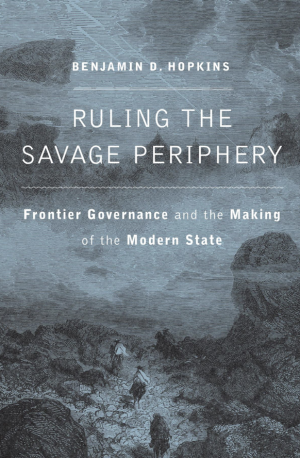
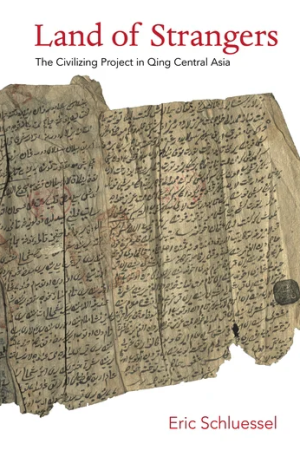
![Book Cover Image: War Photography. Text: "Marvelous....Spector's gripping book... [helps] us to understand why the legacy of these conflicts is still with us today." - Sheila Miyoshi Jager, New York Times Book Review. Ronald H. Spector A Continent Erupts: Decolonization, Civil War, and Massacre in Postwar Asia, 1945-1955](/sites/g/files/zaxdzs4886/files/styles/d03/public/2023-11/screenshot_2023-11-08_at_4.14.33_pm.png?itok=i51CaMmX)




